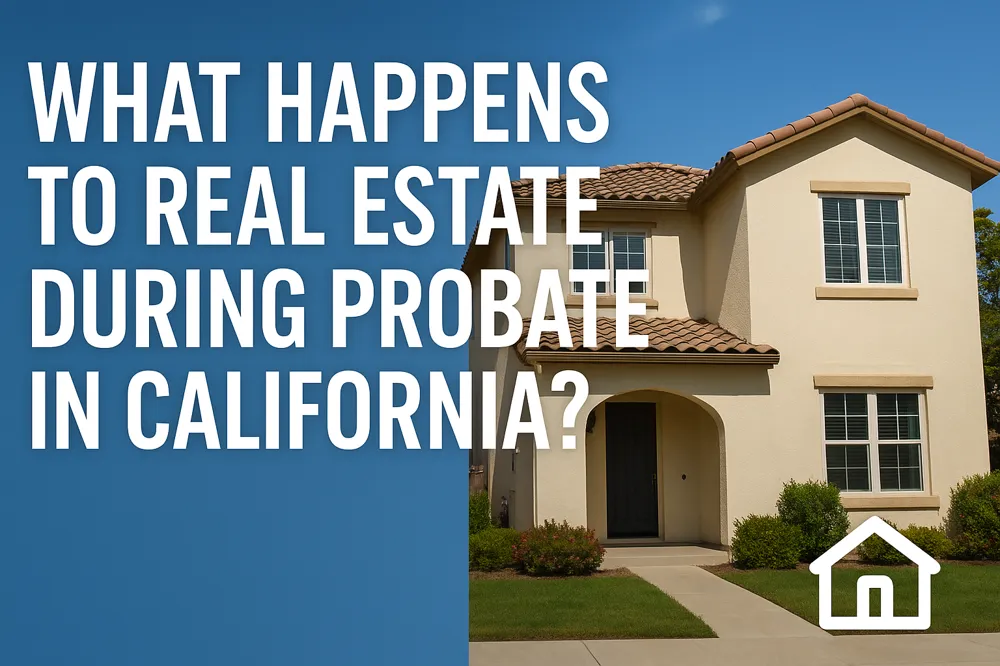What Happens to Real Estate During Probate in California?
When a loved one passes, one of the most immediate concerns families face is: what will happen to their home? In California, most estates go through probate, a court-supervised process that validates wills, pays debts, and distributes assets. Because real estate is often the largest asset in an estate, understanding how it’s handled during probate is essential for executors, heirs, and families.
What is probate in California?
Probate is the legal process the court uses to: validate a will (if one exists), identify and collect assets, pay valid debts and taxes, and distribute remaining assets to heirs or beneficiaries. For real estate, probate determines who has the authority to manage or sell the property and ensures the sale or transfer complies with California law.
How real estate is handled during probate
Real property typically remains part of the decedent’s estate until the court authorizes a transfer or sale. Key points include:
- Appraisal: A probate referee or court-approved appraiser assigns a fair market value.
- Executor / Personal Representative: The person appointed by the court manages the property and handles necessary filings.
- Sale or Transfer: The home can be sold to pay debts or divided among heirs — sometimes the court must confirm the sale.
Steps to transferring or selling property in probate
Below is a simplified step-by-step view of a typical probate real estate sale in California:
- File the probate petition: The formal request to open probate is submitted to the court.
- Appointment: The court appoints a personal representative (executor) to manage estate affairs.
- Inventory and appraisal: Assets including the home are inventoried and appraised by a probate referee.
- Court approval (if required): Depending on the estate, court confirmation of a sale may be necessary.
- Market & sell: With a probate-experienced agent, the property is listed, offers reviewed, and the sale completed.
- Distribute proceeds: After debts, taxes, and fees are paid, remaining funds are distributed to heirs.
Common challenges families face
- Time: Probate often takes 9–18 months or longer depending on complexity and court schedules.
- Heir disputes: Multiple heirs with differing opinions can delay decisions or sales.
- Upfront costs: Mortgage, utilities, and maintenance need managing until the property is sold.
- Court requirements: Legal filings and confirmations add steps not found in a traditional sale.
Why work with a Probate Real Estate Specialist
Probate sales differ from traditional real estate transactions. A specialist who understands probate procedure helps reduce delays and protect the estate’s value. A Probate Real Estate Specialist can:
- Navigate court paperwork and timing.
- Coordinate appraisals and court-required steps.
- Market and stage probate properties for best offers.
- Communicate clearly with heirs and attorneys to avoid disputes.
Note: If the property was owned in a living trust or held with certain types of joint ownership, it may avoid probate. Every estate is different — early review can save time and money.
Next steps if you’re handling a probate property
Start by gathering key documents: death certificate, will (if available), deed/grant deed, recent mortgage statements, and any estate-related correspondence. Keep a digital folder so documents are easy to share with attorneys, appraisers, or your probate specialist.
If you’d like, I offer a free initial consultation to review your situation and explain the most efficient path forward for your property.
Schedule your free consultation with Steve Casillas

